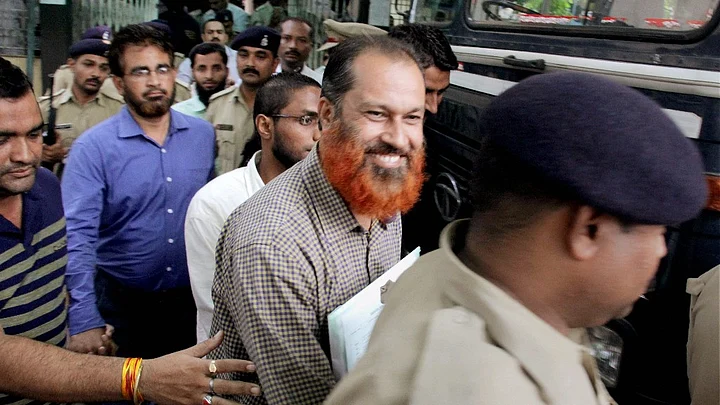An NIA court in Kochi, on 15 May, awarded seven years of rigorous imprisonment to 18 people for being members of a terrorist organisation in a case of organising an arms training camp in Kerala in 2007.
The court, on 14 May, convicted the accused – which included Safdar Nagori, the founder member of the banned Students Islamic Movement of India (SIMI).
Special NIA court judge Kauser Edappagath convicted the 18 accused under the Unlawful Activities Prevention Act, the Explosives Substances Act and Section 120-B (criminal conspiracy) of the Indian Penal Code (IPC). The court also acquitted 17 others in the case.
What is the Case?
The case was registered by Kerala Police against SIMI members for holding an arms training camp in December 2007 at Thangalpara in Wagamon.
According to the chargesheet filed by the National Investigation Agency (NIA), the participants at the "secret training camp" had engaged in physical training, firing practice, training in explosives, motorcycle racing, rope climbing, besides classes on "jihad" in India.
The court rejected the NIA’s charges against the accused under sections 122 (collecting arms with intention of waging war against the Government of India), 124-A (attempts to spread disaffection towards government) and 153-A (spread enmity between communities) of the IPC.
Besides 48-year-old Nagori, the others convicted are Saduli, PA Shibily, Mohammed Ansar and Abdul Sathar (all from Kerala); Hafeez Hussain, Mohammed Sami Bagevadi, Nadeem Sayeed, Dr HA Asadulla, Shakeel Ahammed and Mirza Ahmed Baig (Karnataka); Aamil Parwaz and Kamaruddin Nagori (Madhya Pradesh); Mufti Abul Bashar (Uttar Pradesh); Danish and Manzar Imam (Jharkhand); Mohammed Abu Faisal Khan (Maharashtra); and Alam Jeb Afridi (Gujarat).
While only two accused were produced in the court on 14 May, the others who are lodged in various jails in Ahmedabad, Bhopal and Bengaluru attended the proceedings through video-conference.
Nagori, who was the founding member of SIMI in India, is believed to have been radicalised after the Babri Masjid demolition in December 1992.
The son of a policeman in Madhya Pradesh, Nagori's name first surfaced in police records in 1998 for alleged anti-national activities.
He continued playing hide and seek with the police till he was arrested in Madhya Pradesh in 2008. SIMI had been banned in 2001 as a terror organisation for being "suppliers" of cadres to terror groups such as Taliban, Lashkar-e-Taiba, Jaish-e-Mohammad and the Harkat ul-Jihad-e-Islami in carrying out activities in India and Afghanistan.
The case was originally registered at Mundakayam on 21 June 2008 and the probe was handed over to the NIA in January 2010.
The first chargesheet was filed in 2011, followed by supplementary chargesheets in 2013 and 2015, against 38 people.
Trial in the case commenced in January last year and 33 accused persons lodged in Ahmedabad, Delhi, Bhopal and Bengaluru prisons were produced through video-conference, while the remaining two accused were produced in person.
One chargesheeted accused, Wasik Billa, a resident of Azamgarh in Uttar Pradesh, has been absconding, while another, Mehboob of Madhya Pradesh, was killed in an encounter in Bhopal in October, 2016.
Another accused, Abdus Subhan Qureshi alias Tawqeer, a resident of Mumbai, was arrested in the case recently.
The prosecution examined 77 witnesses through whom 252 documents and 43 material objects got exhibited, while the defence examined three witnesses during the trial.
(The Quint is now on WhatsApp. To receive handpicked stories on topics you care about, subscribe to our WhatsApp services. Just go to TheQuint.com/WhatsApp and hit Send.)
(At The Quint, we question everything. Play an active role in shaping our journalism by becoming a member today.)
